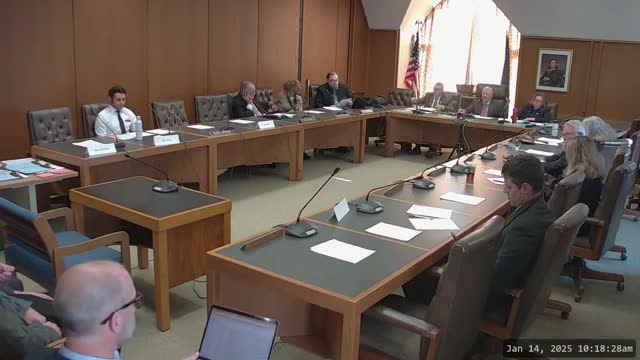Lawmakers weigh bill to allow patrons to take purchased alcoholic drinks into restrooms
Get AI-powered insights, summaries, and transcripts
Subscribe
Summary
Representatives, industry groups and the Liquor Commission debated House Bill 81, which would lift the statutory prohibition on taking a purchased alcoholic beverage into a restaurant restroom; supporters cited safety and drink-control, opponents raised underage and liability concerns.
The House Commerce and Consumer Affairs Committee held testimony on House Bill 81, which would remove the statutory prohibition on taking a purchased alcoholic beverage into a restaurant restroom.
Proponents say the change helps individuals keep control of their drinks and may reduce opportunities to spike beverages; opponents and Liquor Enforcement officials said the change could increase underage access and complicate enforcement of overservice statutes.
Rep. [first name not specified] Sullivan, the sponsor, described the bill as rooted in concerns about drink‑spiking and personal safety. Sullivan said a close friend was roofied outside New Hampshire and that “people should be in charge of their own drinks.” He told the committee he had recently seen a bar post a sign forbidding drinks in restrooms and said the ban undermines personal control of beverages.
Mike Summers of the New Hampshire Lodging and Restaurant Association said allowing drinks into restrooms “really does raise the liability for the restaurant owner or the licensee,” and he emphasized the club’s concern about underage patrons receiving drinks in bathrooms. Deputy Chief Danielle Ellison of the Liquor Commission’s Enforcement and Licensing division described the agency’s investigative process for suspected overservice and underage possession: investigators pull receipts, interview staff and review surveillance video, and the commission enforces a statute that makes licensees liable when a person under 21 is caught in possession of alcohol on licensed premises.
Committee members pressed for details on liability and enforcement. Representative Shu asked who would be responsible if a beverage left unattended was tampered with. Sullivan replied that if a licensee properly monitored service and sold only a limited number of drinks, that should shield them from liability; the Liquor Commission said it would investigate overservice claims the same way regardless of where a beverage was later found.
Industry groups expressed broad concern about underage access in restrooms and about enforcement limits where there is no camera coverage. Summers and the Hospitality Association recommended leaving the restriction in place. New Futures’ Kate Fry supported the bill on prevention grounds; she argued that the public‑health benefits of keeping individuals in control of their drinks should be considered, but she also asked that any change avoid creating enforcement gaps that would jeopardize federal substance‑use prevention funding (Synar compliance) tied to underage sales monitoring.
The committee closed the hearing on HB 81 after testimony from both sides and did not record a final vote. The matter will be available for subcommittee review.
